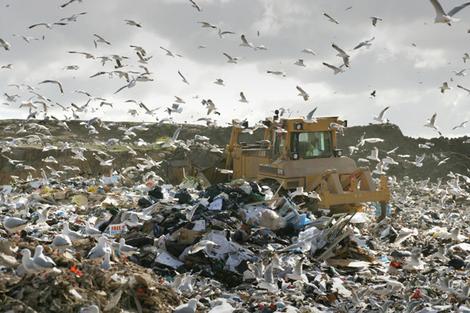Around the world, the concept of the reusable bag is catching on with gusto. The reasoning may differ from country to country, but the effects seem to be the same: less waste and more money towards environmental causes.
 Many people claim that paper is more environmentally friendly than plastic, but the truth is far from that. Paper bags consume over 40% more energy to produce than plastic bags. Paper produces 50%-70% more pollutants than plastic bags in production. Paper bags also can only be recycled 5-7 times, and then the fibers are too short to stick together properly and still be useful. Unfortunately, plastic isn’t the answer. Although they use less energy to produce, they’re made of polyethylene, which is a man-made polymer that microorganisms don’t recognize as food. Essentially they will dissolve over hundreds of years through photoradiation, but that still means they just become tiny granules.
Many people claim that paper is more environmentally friendly than plastic, but the truth is far from that. Paper bags consume over 40% more energy to produce than plastic bags. Paper produces 50%-70% more pollutants than plastic bags in production. Paper bags also can only be recycled 5-7 times, and then the fibers are too short to stick together properly and still be useful. Unfortunately, plastic isn’t the answer. Although they use less energy to produce, they’re made of polyethylene, which is a man-made polymer that microorganisms don’t recognize as food. Essentially they will dissolve over hundreds of years through photoradiation, but that still means they just become tiny granules.
Ireland introduced a plastic bag tax, referred to as the “plastax” in 2002. The tax is now about 33 cents in USD. The money from this tax goes to the environment ministry and is used for enforcement and clean-up projects. The tax had the desired effect of cleaning up all the bags that littered the streets. Their use of plastic bags decreased by 90% or 277 million bags altogether in the first three months! Isn’t that amazing?
Australia followed suit and in 2009 the state of South Australia banned plastic bags as well. They estimated that 400 million bags would be “saved” in the first year. Studies were done previous to the ban that found that reusable bags used only 9% of the energy and 10% of the greenhouse gas emissions associated with plastic bag use.
South Africa started a trend that has led to nearly a continent-wide ban of plastic bags in Africa. Africa has been plagued with a litter and pollution problem that has left gutters and sewer systems clogged with discarded plastic bags. The ban was instated to help relieve the spread of malaria and other questionable and unsanitary conditions that have come around as a result of the backed up gutters and sewers.
Several cities in the United States are gearing up to make similar changes. New York City, Seattle, Los Angeles, and Dallas have all had grassroots movements asking for a similar bag tax to appear in their cities. The reusable bag movement is catching on, but it takes action on your part to make it happen. Contact your local legislature to let them know you’d like to see something done about the plastic bag problem in your area.
[ad name=”Go-ED-LgSquare”]The Alternative Green Bag:
- Check out our reviews on several different makers and styles of reusable grocery bags
- Use these bags from Zola Goods instead of plastic bags for your produce at the grocery store. They are made from Organic Cotton, and are fair trade from India. They’re also great for lunch bags or garbage bags in your car.
- Biodegradable doggie bags from BioBag USA are great for walks with your pooch. They’re 100% compostable, and 100% biodegradable, and much better for the environment than the conventional alternatives. EconoGreen also has a line of biodegradable garbage bags for the home.
- An awesome alternative to leather, inner tubes! English Retreads. started by Heather English, uses inner tubes from tractors and trucks that have been salvaged from landfills. She makes chic, trendy purses, totes, and belts. You can find similar recycled fashion bags from Urthbags made from juice box cartons and other recycled materials.
- The Autonomie Project makes a great bag for your make-up and can help organize your purse. It’s 100% organic cotton, and fair trade. It’s made by women in Peru and has no dyes or chemicals, and no other synthetic processes were used.
Comments 5
I am a big fan of eco-friendly bags myself. I usually go to http://www.eco-handbags.ca to look for eco-chic bags that are very affordable. It’s a good thing to know more of these bags are being produced, I hope people make a switch to buy eco-friendly products
Pingback: Get The Stamp of Green Approval | The Chic Ecologist
Pingback: Green On The Go | The Chic Ecologist
Eco friendly bags are a great way to do your part to keep the plastic down in our landfills. Best of all you can get them customizes or stylized to fit your taste.
Pingback: Traveling To Bamboo Village - Part 1 | The Chic Ecologist